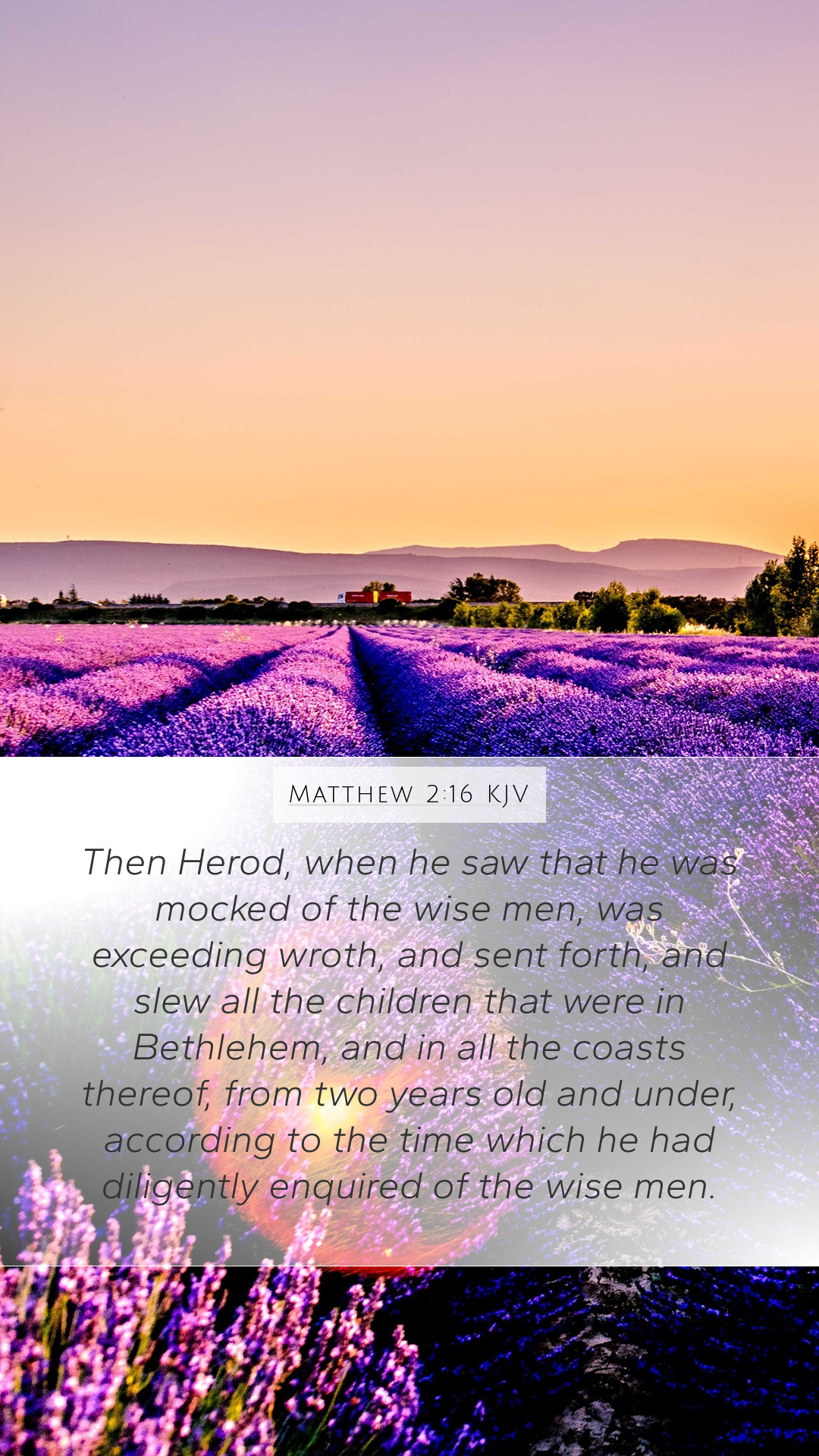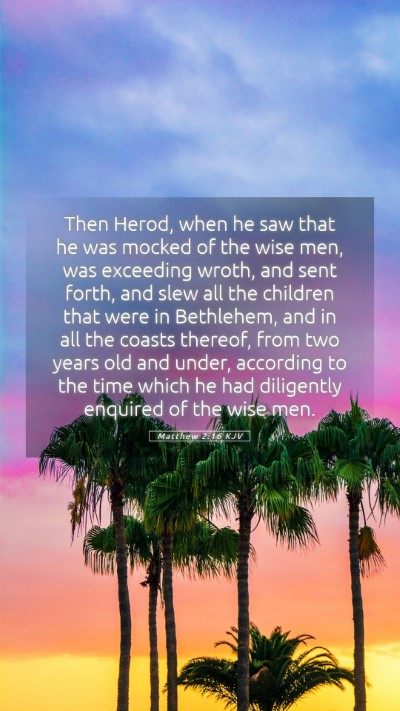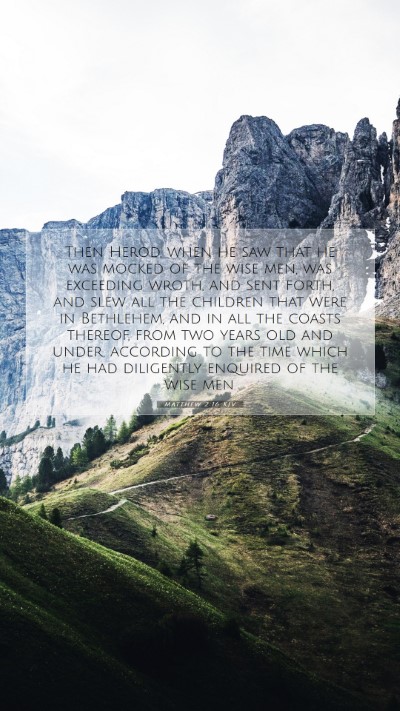Understanding Matthew 2:16
Verse: Matthew 2:16 - "Then Herod, when he saw that he was mocked of the wise men, was exceeding wroth, and sent forth, and slew all the children that were in Bethlehem, and in all the coasts thereof, from two years old and under, according to the time which he had diligently inquired of the wise men."
Overview
This verse portrays the malevolence of King Herod in response to the news of the birth of Jesus. Herod's fear of losing power leads to a heinous act of infanticide, which highlights the darkness that can lurk in human hearts when threatened. It is pivotal to understanding the coming of Christ, as overlaying the events with both historical and theological significance reveals the nature of evil in contrast to divine goodness.
Commentary Insights
-
Matthew Henry:
Henry discusses Herod's character, noting that his violent reaction was fueled by jealousy and fear of a rival king's power. His act of mass murder is a testament to the lengths individuals will go to preserve their authority. Henry emphasizes the fulfillment of prophecy through these lamentations, signifying the deep sorrow that accompanies the arrival of the Messiah amidst such wickedness.
-
Albert Barnes:
Barnes highlights the historical context of Herod as a tyrant, whose fear caused him to act irrationally. He points out that Herod's inquiry to the wise men was not genuine but rather a ploy to identify Jesus for troublesome intentions. The severity of Herod’s actions is viewed as the malicious response of tyranny against the divine plan, portraying the spiritual warfare in juxtaposition to Christ's mission.
-
Adam Clarke:
Clarke focuses on the cruelty of Herod’s decree and its implications. He comments on the prophetic fulfillment relating to Rachel’s lamentation over her lost children, thus intertwining this act of violence with biblical prophecy's somber themes. Clarke's analysis enhances the understanding of why such accounts are recorded—they serve as a reflection of God's plan unfolding amid human opposition.
Biblical Exegesis
Matthew 2:16 provides deep insights into the nature of evil and the response to Christ's presence in the world. It serves as a grim reminder that the arrival of the Savior did not eliminate sin and strife but rather exposed it. The mass slaughter of the innocents is often interpreted as a fulfillment of Jeremiah's prophecy (Jeremiah 31:15), underscoring that divine purposes persist despite human actions.
Historical Context
The brutality of Herod's decree can be better understood through the socio-political landscape of Judea at the time. Herod's reign was characterized by suspicion and violence, as he often eliminated any threats to his power, including members of his own family. This context illuminates why such extreme measures were taken against the infants of Bethlehem.
Application to Daily Life
In reflecting on Matthew 2:16, believers are prompted to confront the realities of evil and power struggles within their lives. This verse challenges individuals to consider their responses to perceived threats—do they act with love and kindness, or do they allow fear and jealousy to dictate their actions? The horror of Herod’s actions stands as a timeless reminder of the need for vigilance against our baser instincts.
Cross References
- Jeremiah 31:15 - The prophecy concerning Rachel's mourning.
- Exodus 1:22 - Pharaoh's decree to kill Hebrew sons.
- Revelation 12:4 - Imagery of the dragon seeking to consume the child.
Conclusion
Understanding Matthew 2:16 reveals profound truths about power, evil, and the birth of Jesus Christ. It is both a narrative of horror and the backdrop for the extraordinary light of Christ's coming. Engaging with such scripture through diligent study, commentary, and application allows believers to grasp deeper biblical truths and helps navigate the complexities of faith in a world filled with opposition.
Further Study Resources
For those interested in further exploring the interpretations of Bible verses, consider joining Bible study groups or utilizing online Bible study tools. Additional Bible study guides and courses can offer structured insights into challenging passages, enhancing your Bible study insights and overall understanding of Scripture.


